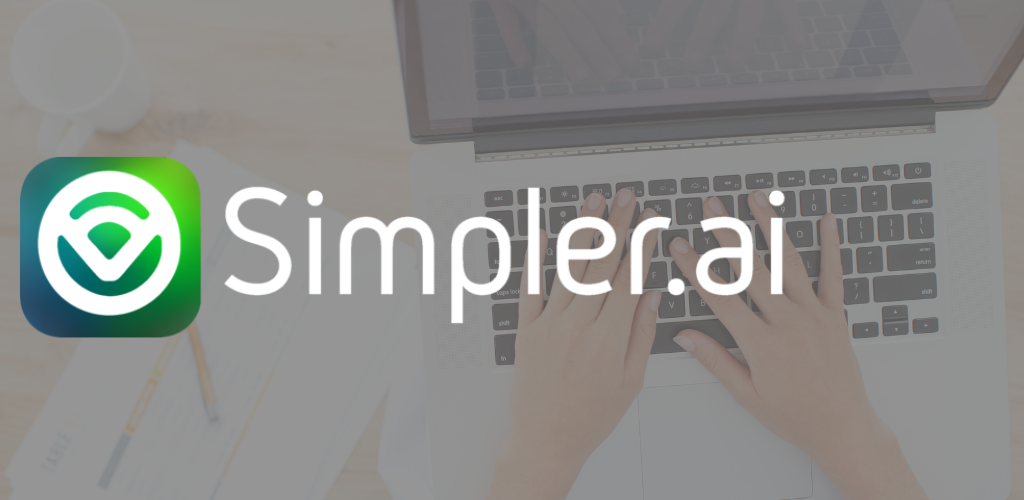Artificial intelligence (AI) is transforming the IT industry, and global spending on AI systems is expected to reach $110 billion by 2024. For IT professionals, access to AI tools is all about is critical to increasing productivity, simplifying business processes, and effectively solving complex challenges. These tools cover a range of applications from data analytics to automation to cybersecurity and software development.
For example, AI-driven development environments can identify errors and optimize code, saving valuable time and reducing errors. AI tools can anticipate and mitigate threats faster than conventional methods. AI-powered automation tools can handle routine tasks, allowing IT professionals to focus more on strategic processes.
With these AI tools, IT professionals can drive innovation, improve operational efficiency, and maintain a competitive edge. This introduction will explore some of the most sophisticated AI tools for IT professionals available, giving IT professionals the insights they need to excel in a rapidly evolving technology landscape.
What is the Role of AI in the IT Industry?
The impact of artificial intelligence (AI) on information technology is profound and transformative. AI’s ability to automate routine tasks, deliver predictive insights, and facilitate advanced system design and automation is transforming the industry.
Technologies such as machine learning and deep learning are driving the creation of sophisticated and user-friendly software applications. AI greatly enhances data analysis capabilities. It can process and analyze large volumes of data faster and more accurately than human analysts, which is a huge advantage in an industry that relies heavily on data-driven decisions.
This efficiency in data processing enables informed and timely decision making, helping IT departments remain competitive and innovative. Overall, the integration of AI into the IT industry has led to increased efficiency, improved software quality, and better use of data, and reinforced its role as a key driver of industry growth.
The Influence of AI on IT Professionals
Artificial intelligence (AI) is transforming the workforce, increasingly impacting the job market and changing the demand for specific skills. As AI automates many routine tasks, potentially displacing some jobs, AI is simultaneously creating new roles for ethicists, data scientists, and machine learning engineers existing job roles have also been developed.
For example, software developers now have to master AI algorithms. IT support staff needs to maintain AI-powered systems, and IT managers need to use AI to improve efficiency. The impact of AI extends beyond simple job creation or elimination; Changes job roles and responsibilities.
These changes have particularly affected the information technology sector. AI-related skills are in high demand, including machine learning, deep learning, and natural language processing.
The impact of AI is not limited to technology. As AI becomes more integrated into business processes, the need for employees who can bridge the gap between AI and business processes increases. These individuals must be adept at using AI to solve business challenges, drive innovation, and identify new opportunities.
10 Best AI Tools for IT Professionals
1. ChatGPT by OpenAI

ChatGPT is a versatile AI tool that uses natural language processing (NLP) to generate human-like content and provide solutions to a variety of IT-related questions Useful for automating customer support on task, executing code snippets, and helps with troubleshooting.
PROS –
– Handle customer inquiries effectively.
– Enable repetitive tasks.
– Improve response time.
– May generate code and technical documentation.
– Integrates well with existing systems.
CONS –
– Training and adjustments needed.
– Inability to handle complex questions effectively.
– Less understanding of the context of a text.
– Privacy and data security issues.
– Initial setup can take a lot of time.
FEATURES –
– Natural language processing (NLP) for human-like text generation.
– A multilateral communication capability for robust communication.
– Flexible responses and attitudes.
– Integration with platforms and APIs.
– Continuous learning and improvement based on user interaction.
PRICE
$20 per month.
2. IBM Watson

Watson offers AI-powered analytics, natural language understanding and machine learning capabilities. IT professionals use it for data analytics, predictive management, and cognitive processes, improving decision-making processes.
PROS –
– Improved analytical capabilities.
– Together with collaborative planning.
– Support complex questions and tasks.
– Provide scalable solutions.
– Provide actionable insights.
CONS –
– Essential for enterprise solutions.
– a learning curve.
– Training requires large amounts of data.
– Robust deployment process.
– Possible bias in AI models.
FEATURES –
– Intellectual computing capabilities for advanced analysis.
– Natural language understanding (NLU) for unstructured data.
– AI-powered chatbots and virtual assistants.
– Motion analysis and machine learning algorithms.
– Integration with IBM Cloud services and enterprise applications.
PRICE
$140 per month
3. Azure Cognitive Services

Microsoft Azure Cognitive Services provides vision, speech, language, and decision APIs. IT professionals use these tools for image recognition, language translation and sentiment analysis, among other tasks.
PROS –
– Easy integration with Azure cloud services.
– With AI capabilities.
– Adjustable solution.
– A developer-friendly API.
– Continuous updates and improvements.
CONS –
– Costs may increase with use.
– Limited options.
– Building on the Azure ecosystem.
– Possible API changes affecting functionality.
– Privacy and compliance considerations.
FEATURES –
– Vision API for image recognition analysis.
– Language API for converting speech to text and vice versa.
– Language API for natural language processing services.
– Decision APIs for AI-powered decisions.
– Customizable AI models and deployment options in Azure.
PRICE
$2 per 1,000 transactions
4. TensorFlow

TensorFlow is Google’s open-source machine learning platform. It is of great interest to IT professionals for developing and running machine learning models, processing complex data, and training neural networks.
PROS –
– Flexibility and scalability.
– Growing ecosystems and community support.
– Suitable for deep learning assessment.
– Integration with other Google services.
– Continuous improvements and updates.
CONS –
– a learning curve.
– Knowledge of Python and machine learning concepts required.
– Performance issues with large datasets.
– Debugging complex models can be challenging.
– Minimal support for non-Google cloud platforms.
FEATURES –
– Open-source machine learning framework for building and training models.
– Using neural networks to support deep learning.
– Scalability to handle large data and complex models.
– Flexible with multiple programming languages (Python, C++, etc.).
– Integration with Google Cloud Platform and TensorFlow Serving for deployment.
PRICE
$1 per 1,000 units
Also Read – Using AI for Market Intelligence: Transforming Data into Actionable Insights
5. Amazon AI Services

Through AWS, Amazon offers AI services, including speech recognition, speech understanding and computer vision. IT professionals use these services to develop applications with AI functionality and manage data at scale.
PROS –
– Flexible and secure.
– A wide range of AI applications.
– Connect to the AWS ecosystem.
– Inclusive pricing model.
– Reliable performance and uptime.
CONS –
– Robust management of AWS objects.
– Costs can accumulate as they are used.
– Possible vendor lock-in.
– AWS-specific knowledge required.
– Limited customization options for some projects.
FEATURES –
– Acceptable for image and video analysis.
– Polly for text-to-speech conversion.
– Lex for building chatbots.
– Understanding for natural language processing and sensitivity analysis.
– SageMaker for building, training and deploying machine learning models on AWS.
PRICE
$0.10 per node hour
6. H2O.ai

H2O.ai provides open-source machine learning and AI platforms for building and implementing models. It is used by IT professionals for predictive analytics, anomaly detection and data visualization services.
PROS –
– Easy to use platform.
– Support for various machine learning algorithms.
– Scalable solutions for big data.
-Integrates with popular programming languages.
– Active community and support.
CONS –
– Limited support for deep learning.
– Understanding of data science concepts required.
– Based on platform-specific dependencies.
– Performance issues with very large data sets.
– Writing documents can be difficult for beginners.
FEATURES –
– Open AI and machine learning platform.
– Automated Machine Learning (AutoML) for model selection and tuning.
– Support distributed computing and big data processing.
-Integration with programming languages like Python and R.
– AI-powered feature engineering, model definition and power tools.
PRICE
Pricing is based on deployment size and enterprise needs.
7. UiPath

UiPath is an RPA (Robotic Process Automation) tool that uses AI to automate routine tasks and workflows. It is used by IT professionals to automate IT operations, data entry, and back-end systems.
PROS –
– Simplifies repetitive tasks.
– Improve efficiency and accuracy.
– Blending and property planning.
– Extensive library of pre-built automation components.
– Customizable deployment options.
CONS –
– Initial design and planning can be time consuming.
– Complex workflows may require significant flexibility.
– Limited AI capabilities compared to dedicated ML tools.
– Managing automation scripts can be difficult.
– Possible automation logic errors.
FEATURES –
– Robotic Process Automation (RPA) to automate routine tasks.
– AI clothing that integrates AI capabilities in the automation process.
– Low-code/ no-code development environment for automation scripts.
– Orchestrating and managing bots and workflow.
-Integration with enterprise applications and systems (ERP, CRM, etc.).
PRICE
$420 per month
8. Splunk

Splunk uses AI and machine learning for IT operations, security and analytics. IT professionals rely on Splunk for real-time analytics, log analysis, and predictive insights into IT infrastructure.
PROS –
– Real-time visibility into IT services.
– A powerful search and analysis capability.
– Adjustable.
– Mixing with third party equipment.
– AI-driven insights for proactive management.
CONS –
– Higher licensing fees.
– Strong in design and implementation of large-scale projects.
– Training and skills required for successful implementation.
– Performance issues with extensive amounts of data.
– A limited set of AI algorithms.
FEATURES –
– Real-time data collection, indexing and searchability.
– Machine learning tool for developing predictive analytics and anomaly detection.
– Splunk Enterprise Security provides threat detection and response.
– Integration with third party tools and data sources.
– Dashboards and visualizations for data analysis and management.
PRICE
$65 per GB of data
9. Salesforce Einstein

Salesforce Einstein is an AI-powered CRM platform that provides predictive analytics, personalized recommendations and automation capabilities. IT professionals use it for customer insights, sales forecasting and marketing automation.
PROS –
– Increases customer engagement and satisfaction.
– Conducting movement analysis for sales and marketing.
– Integration into the Salesforce ecosystem.
– Easy to use AI products for non-technical users.
– Continuous updates and enhancements.
CONS –
– Great for small to medium businesses.
– Customization may require Salesforce-specific knowledge.
– A limited AI customization options.
– Depending on Salesforce configuration.
– Data privacy and security issues.
FEATURES –
– AI-powered CRM enables sales, service and marketing.
– Initial scoring and opportunity assessment.
– Einstein experiments for analyzing data and exploring insights.
– personalization and recommendation engine for customer interaction.
– Integration with Salesforce CRM and other Salesforce clouds.
PRICE
$75 per user per month
10. Watson Studio by IBM

Watson Studio is an integrated platform for data scientists, AI developers and IT professionals to build, train and deploy AI models and applications Supports collaborative projects, e.g development and deployment pipelines.
PROS –
– Comprehensive AI ecosystem management.
– Supports various data science tools and frameworks.
– Facilitates AI model development and implementation.
– Integration with IBM Cloud and other IBM services.
– Advanced AI capabilities with Watson APIs.
CONS –
– Costs necessary for company resources.
– Complex design and planning.
– Expertise in data science and AI.
– Building on the IBM ecosystem.
– Possible for integration challenges with other platforms.
FEATURES –
– Integration for data science and AI development.
– Collaboration with teams of data scientists and developers.
– Support for multiple data sources and file formats.
– AutoAI for automatic machine learning model generation.
– Deployment options in IBM Cloud and integration with Watson APIs.
PRICE
$1.05 per Capacity Unit-Hour
Ending Note
As AI continues to evolve, its integration into IT is changing how businesses manage and optimize technology systems AI tools used in data analytics, automation, cybersecurity, software development, and more inside is not just a trend but a necessity to stay competitive, anticipate and automate routine tasks, and strengthen cybersecurity policies
Adopting AI tools enables IT professionals to improve productivity, reduce errors, and focus on strategic tasks to drive innovation. Moving forward, the ability to effectively leverage these AI-powered solutions will set leading IT professionals and organizations apart from the rest.
By staying abreast of the latest AI tools for IT professionals and integrating them into their operations, IT professionals can ensure they are well prepared to meet the technological challenges of tomorrow. The future of IT is undoubtedly linked to AI, and those who harness its power will be leaders in the field.
FAQ’S
1. Can AI increase productivity?
Yes, AI increases productivity by automating tasks, optimizing processes, and providing data-driven insights, allowing businesses to focus on strategic operations so
2. How to use AI to increase productivity?
AI increases productivity through task automation, data analytics for insights, and optimizing business processes with AI-driven tools. It also provides better customer service.
3. How is the IT industry using AI?
It improves operational efficiency by integrating AI for coding assistance, cybersecurity threat detection, IT support through chatbots, and optimizing network performance






